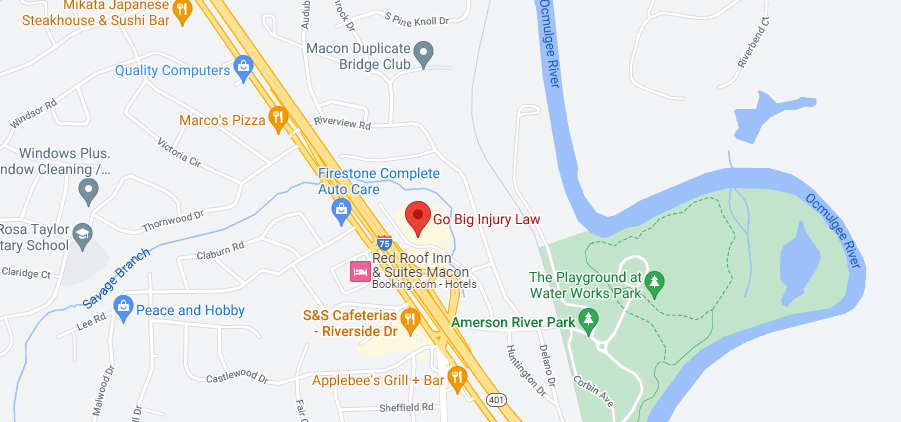What is the Legal Definition of Wrongful Death?
Suppose a family member or loved one dies due to someone else’s negligent actions (or intentional cruelty). In that case, the surviving family members may be entitled to seek Wrongful Death Compensation lawsuit. In Georgia, wrongful death suits may be filed by the deceased’s surviving spouse, parents, or children.
Wrongful deaths are fatalities caused by negligent, reckless, or intentional acts of malice. A wrongful death lawsuit is similar to a personal injury lawsuit. However, since the deceased cannot represent themselves, their surviving loved ones will take up the case and represent the decedent’s interests while pursuing maximum compensation. The at-fault party could be an individual, a group of individuals, a business entity, a government entity, or a company.
A successful wrongful death claim requires that the claimant and their attorney establish to the court that another party’s actions or inactions caused the death. This may be proven by showing that the at-fault party breached their duty of care, resulting in hazardous conditions, the consequences of which claimed the life of an innocent person. If the court finds in favor of your claim, you may be able to recover economic and non-economic damages. And though no amount of money can ever hope to bring your loved ones back, the financial recovery will hopefully help alleviate some of the burdens you’ve been left with since their passing.
Are Wrongful Death Claims Civil or Criminal Cases?
Wrongful death claims are civil lawsuits. However, that does not mean that the case can’t also involve criminal charges. Many acts that cause another person’s death are often charged in criminal court as they likely represent some violation of state laws (whether purposely or not). A successful criminal trial against the person who killed your family member could send them to jail but may not provide for financial damages for the loss of the loved one.

Criminal cases require a higher standard of proof for a conviction. For example, an attorney must prove beyond a reasonable doubt that a criminal defendant committed the crime. However, in wrongful death cases, attorneys are not held to the same high standard. The standard in a civil trial is preponderance of the evidence or what is more likely than not.
If you want a well-known example of this, look no further than the O.J. Simpson trial, where Simpson was found not guilty of a crime but was held liable in the wrongful death case.
What Are the Different Types of Wrongful Death Cases?
Several types of cases could be tried as wrongful death lawsuits.
Intentional acts like manslaughter, abuse, assault, murder, battery, and other criminal acts can result in wrongful death.
Medical malpractice can result in death. The doctor or physician meant no harm, but nevertheless, their actions, equipment, or negligence led to their patient’s death. This could be the makings of a medical malpractice wrongful death case.
Cases of negligence are the most common, however. Fatal car accidents, defective product accidents, slips and falls, animal attacks, semi-truck accidents, motorcycle accidents, bicycle crashes, pedestrian accidents, construction accidents, and other accidents may all result in wrongful death cases.
Can a Claimant Sue for Emotional Distress?
Emotional distress, mental anguish, and psychological pain and suffering are common for those who’ve just lost a loved one in a wrongful death. Losing a family spouse, parent, or child can be heartbreaking, especially if you were there to witness the act that claimed their life. Wrongful deaths can dramatically alter your quality of life, potentially causing depression, panic attacks, or post-traumatic stress disorder (PTSD).
It will be up to you and your legal representative to establish the existence of emotional distress in order to file a successful claim. Proof may be established by detailing a timeline of events, gathering medical records, and interviewing expert witnesses.
Can Wrongful Death Attorneys Help You Pursue Compensation?
With a well-argued wrongful death lawsuit, it is possible to recover compensation from the at-fault party’s insurance company or from the at-fault party themselves. You may be rewarded with economic and non-economic compensation. And, in cases of gross negligence and wanton cruelty, you may also be able to seek punitive damages from the defendant.

Economic damages may include the following:
- Burial expenses and funeral costs.
- Loss of benefits from medical coverage, pension plans, and retirement plans.
- Loss of inheritance.
- Lost future income, which should have been earned if the deceased remained among the living.
- Lost wages, either from the deceased or during the time you had to take off work.
- Medical bills from the time following an accident while doctors fought to save the deceased’s life.
Non-economic damages may include:
- Emotional distress suffered by surviving family members.
- Loss of companionship of a father, mother, spouse, or child.
- Loss of consortium.
- Lost quality of life.
- Pain and suffering experienced by the deceased in their final days.
What Does the Firm Mean by the ‘Don’t Pay Unless We Win’ Promise?
Go Big Injury Law operates on a contingency fee basis, meaning we only get paid if we successfully win your case.
If you aren’t awarded damages for your case, then you won’t owe us a dime in legal fees. That’s our guarantee to you.
Schedule a Free Consultation with Experienced Wrongful Death Lawyers Today
When you’re in trouble, call 1800 all sevens. We’ll take care of things from there.
Our firm is staffed by compassionate legal professionals who strive to provide you with the kind of legal representation that you and your family so rightfully deserve.
Don’t settle for less. We can help you seek maximum compensation for your wrongful death claim.
Schedule a zero-obligation, free consultation today by calling our Columbus, GA law offices at (800) 777-7777.

 CALL US NOW
CALL US NOW





